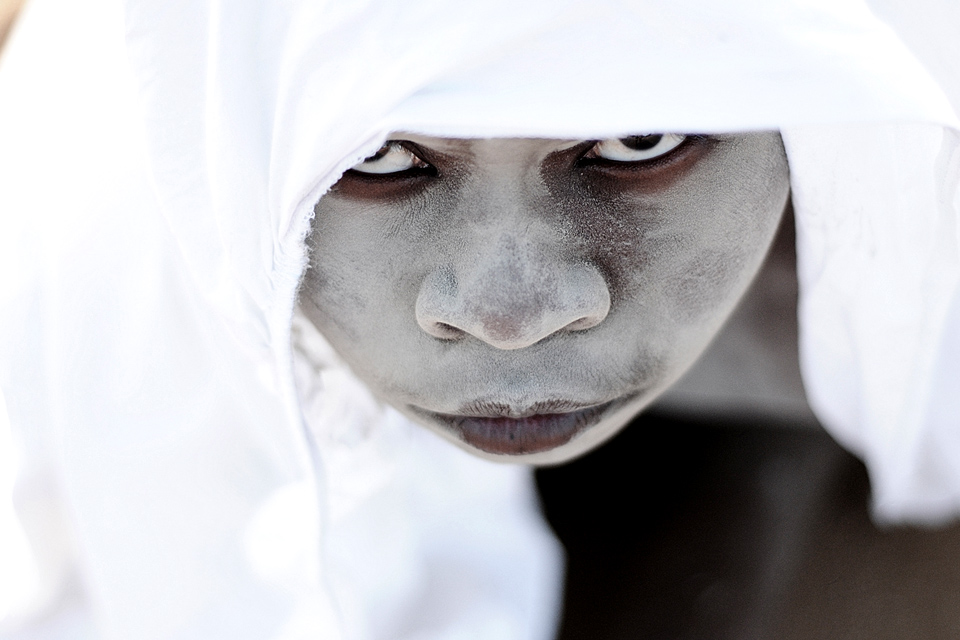
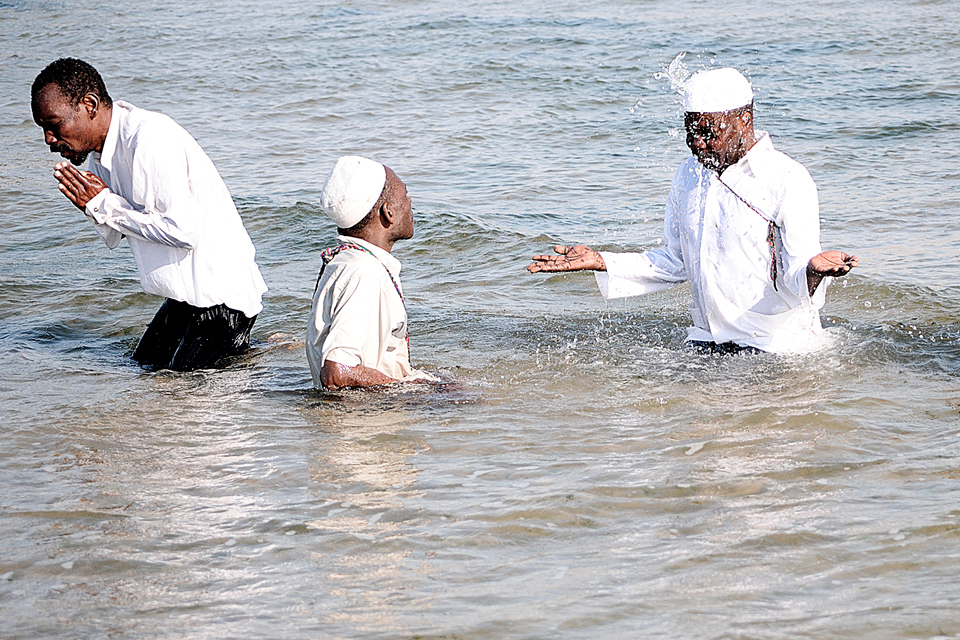
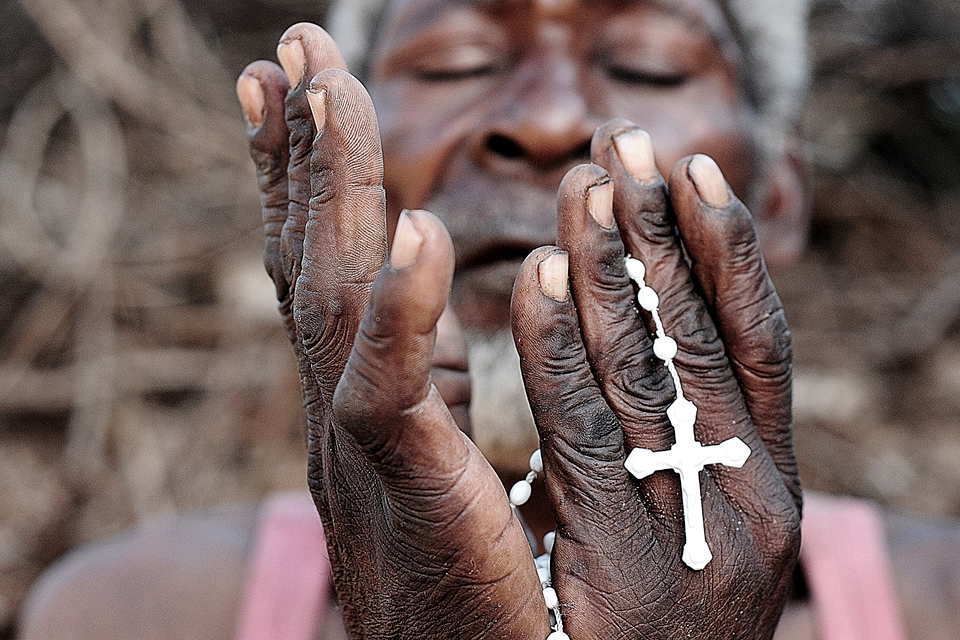
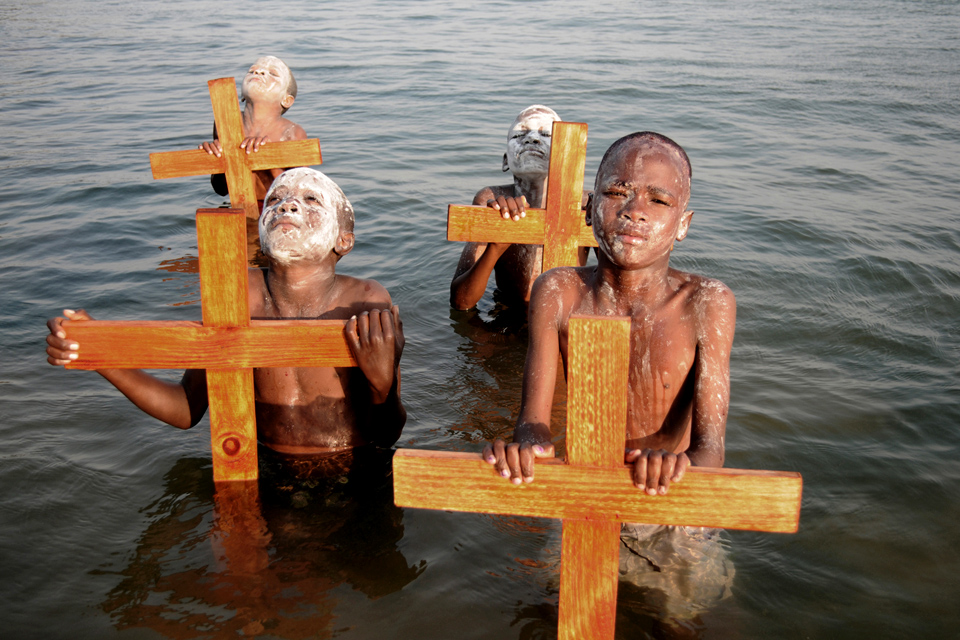
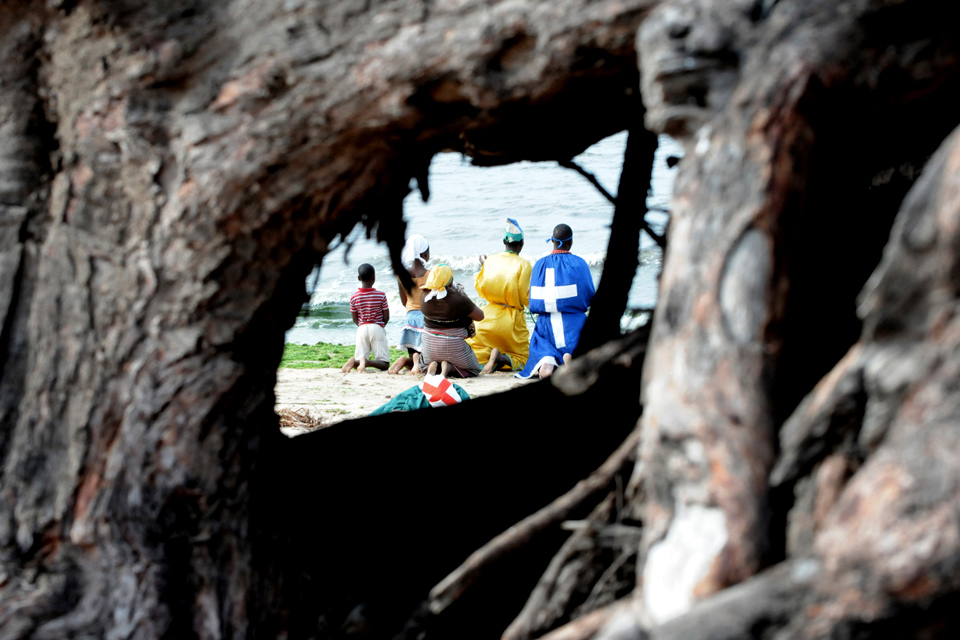
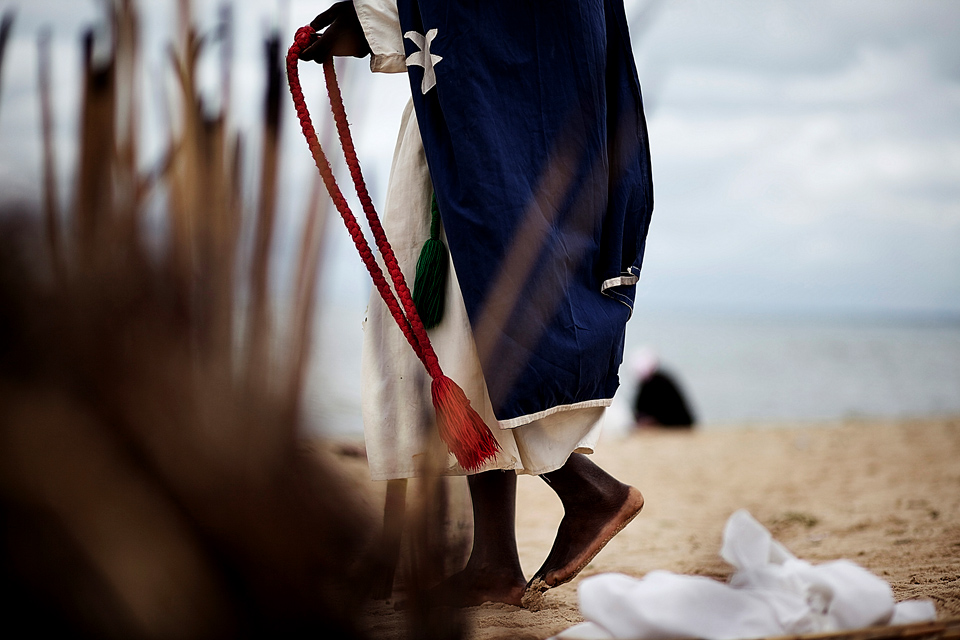
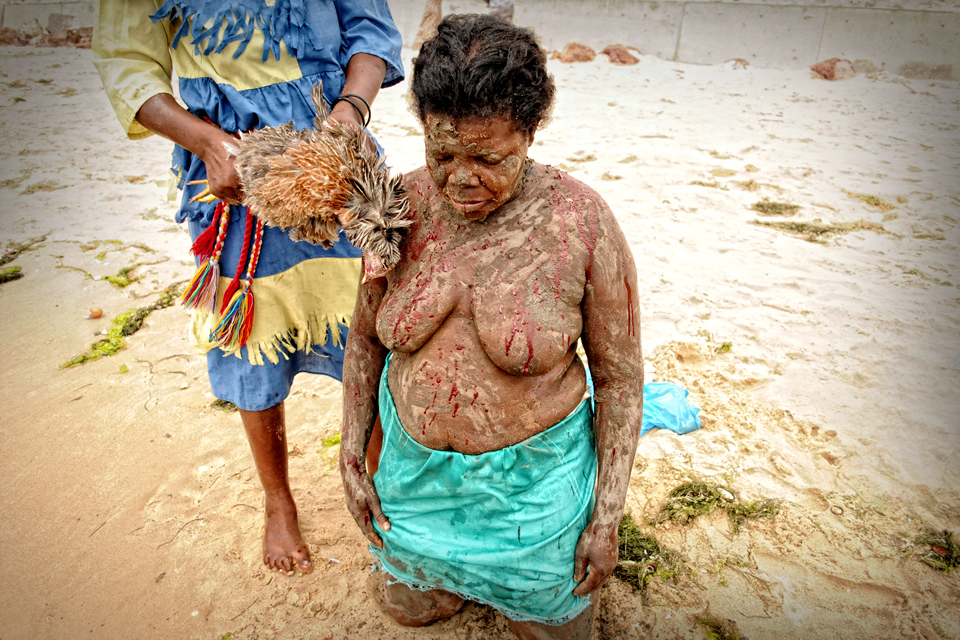
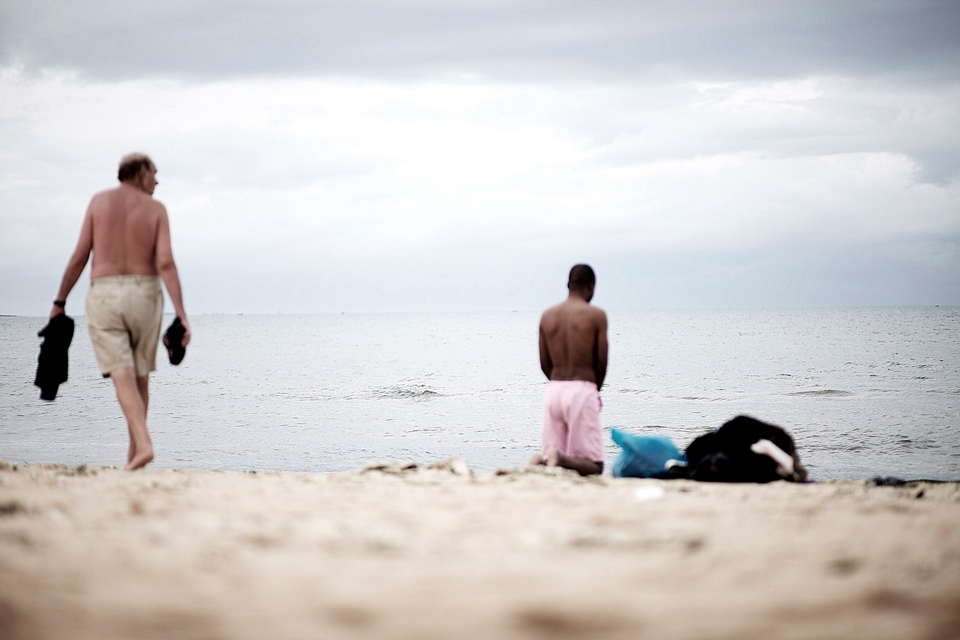
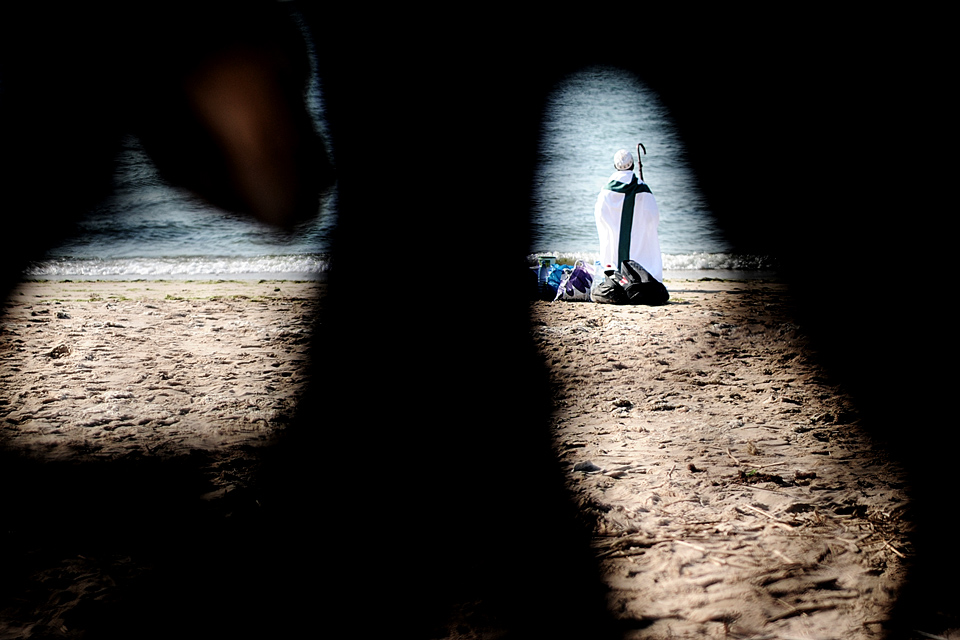
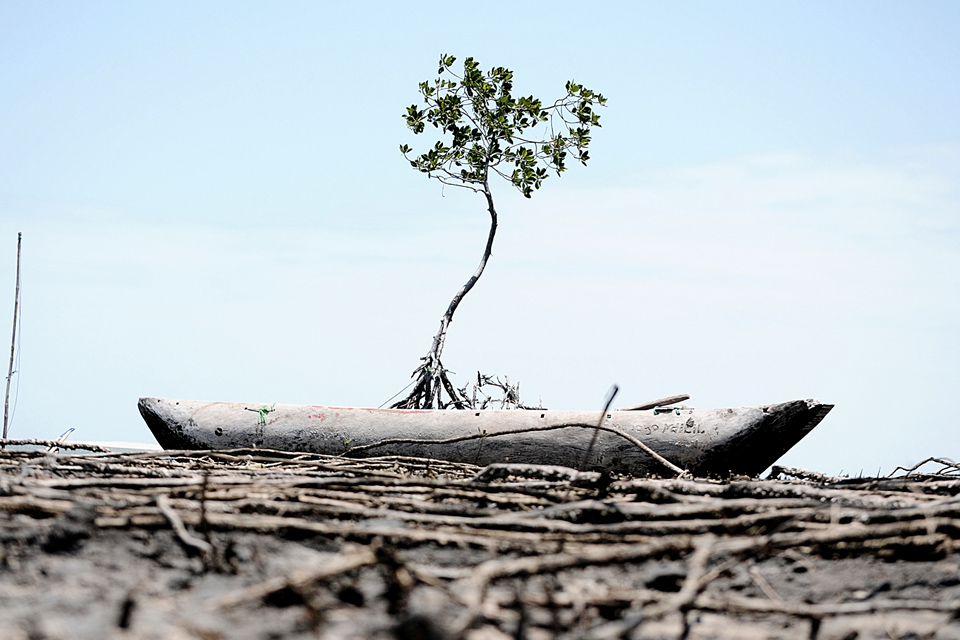
MARIO MACILAU
A mesmerizing sideways reflection welcoming us into the depths
interview: Daniel Perlaky
images: courtesy Mario Macilau
Looking at Mario Macilau's work is at once alarming and provoking, arresting and engaging, public and private, welcoming and disturbing, but, above all, utterly human. The young Mozambican photographer tangles with the power of the image and fervently documents the stories of his culture, and those of people around Africa, producing work that is beyond his years and digs right to the heart of his subjects in an attempt to help us understand and improve our collective lives.
We first saw your work at the BESPhoto installation in Lisbon and were struck not only by the power of your images but also the way you incorporated sounds. What do you think the sound adds to the installation of images?
As a photographer, I believe in the power of images and I've been exploring the relationship that exists between the environment, human beings, and time. Photography has connected me to incredible moments and experiences and all the places have taught me something valuable so I try to keep an open mind. The project you mentioned documents the traditional religious rituals of Mozambique and I realized that to really understand those people's lives, their moments, and their stories, I had to also work with video and sound to support the still images. I wanted to create a permanent context and it's my role as an artist to do that in a creative yet natural way – to help people really feel and connect with that experience.
Are you a hidden documenter, looking into the secret and private lives of your subjects?
My subjects do not have a private life and there are no secrets in photography. I use photography to educate, to tell stories of human beings, to show what has been hidden, and to make our world a better place.
We saw your work at a fine art museum – do you think the subjects of your images would feel it's an appropriate space to see themselves in?
The spaces sometimes define the audience but I like to show my work wherever it can have impact because my purpose is to share so people can feel the story. The people in my images are important to me and I teach them about the power of images and why I'm a photographer, and, usually I invite them to my shows so they understand what I am doing.
How can you capture those moments which seem almost in another dimension?
I usually work on long-term projects which allows me to understand the stories before I even use the camera. I am then able to capture those moments after I've spent a lot of time with them and we have earned each others' trust.
Growing up in Mozambique, what were some of the influences that led you to the camera?
It is always very difficult talk about the beginning but it helps me grow. As a child I had a difficult life growing up with my mother and two sisters. My mother never worked because she is not qualified so I started to work when I was around 8 years old to help them. I still remember that how our community looked down on us and how it made me think that I can’t do anything in life, that I don’t have any talent, that I don’t have future. But even at that time I loved the image – even without knowing what it really is I could feel it's power. In 2003, I started taking pictures for fun and eventually life guided me to Canada where I assisted Dean Van’t Schip and upon my return home in 2007 I was able to begin working more seriously as a professional.
What were the first subjects that really forced you to create?
At first, I didn’t know exactly what I was dealing with, I was just forced by the power of the image and then started to realize I could paint using the light through the lens. Then I started to focus on the movement of human beings, capturing every single moment of where I grew up and live today that allowed me to grow up and learn more with each person who has been captured by my camera.
What are some projects you are currently working on?
I have a personal project photographing colonialist and apartheid-era abandoned luxury buildings. I'm also working at the Grand Hotel in Beira with Spanish photographer Héctor Mediavilla on a project incorporating sound and video that will result in an installation.
Do you consider yourself a documentary or art photographer and is there really a difference between those?
When you look at a subject do you look with your mind and eyes or with your soul and heart?
I am just a simple man behind the camera, I don’t care much about definitions. What is important is to focus on a subject without a camera so I can understand what their world is like, and then after it is connected to my mind and soul in a natural way, I feel it in my heart and can photograph and share it with others.
Through my work, I am always focused on the theme of positive change across different cultures, locations and perspectives. I seek to capture areas in need of transformation and improvement, as so many things in our world require it.
+ Mario Macilau website
+ Berardo Collection BES Photo 2011
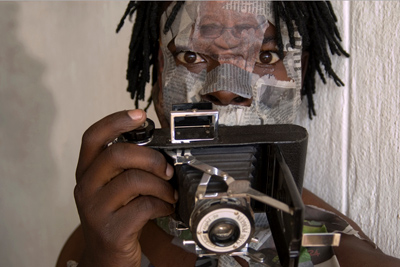
I was just forced by the power of the image and then started to realize I could paint using the light through the lens.